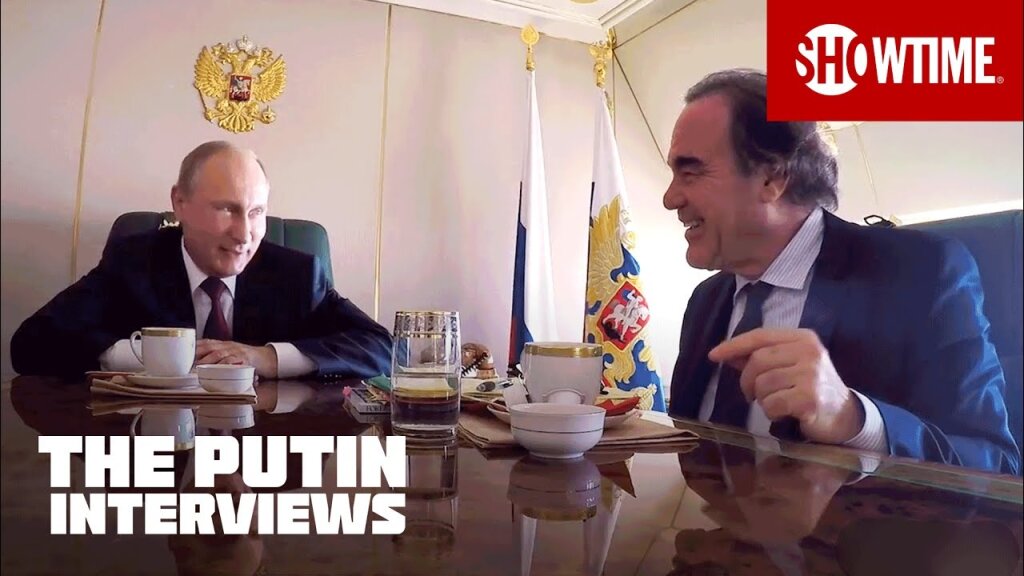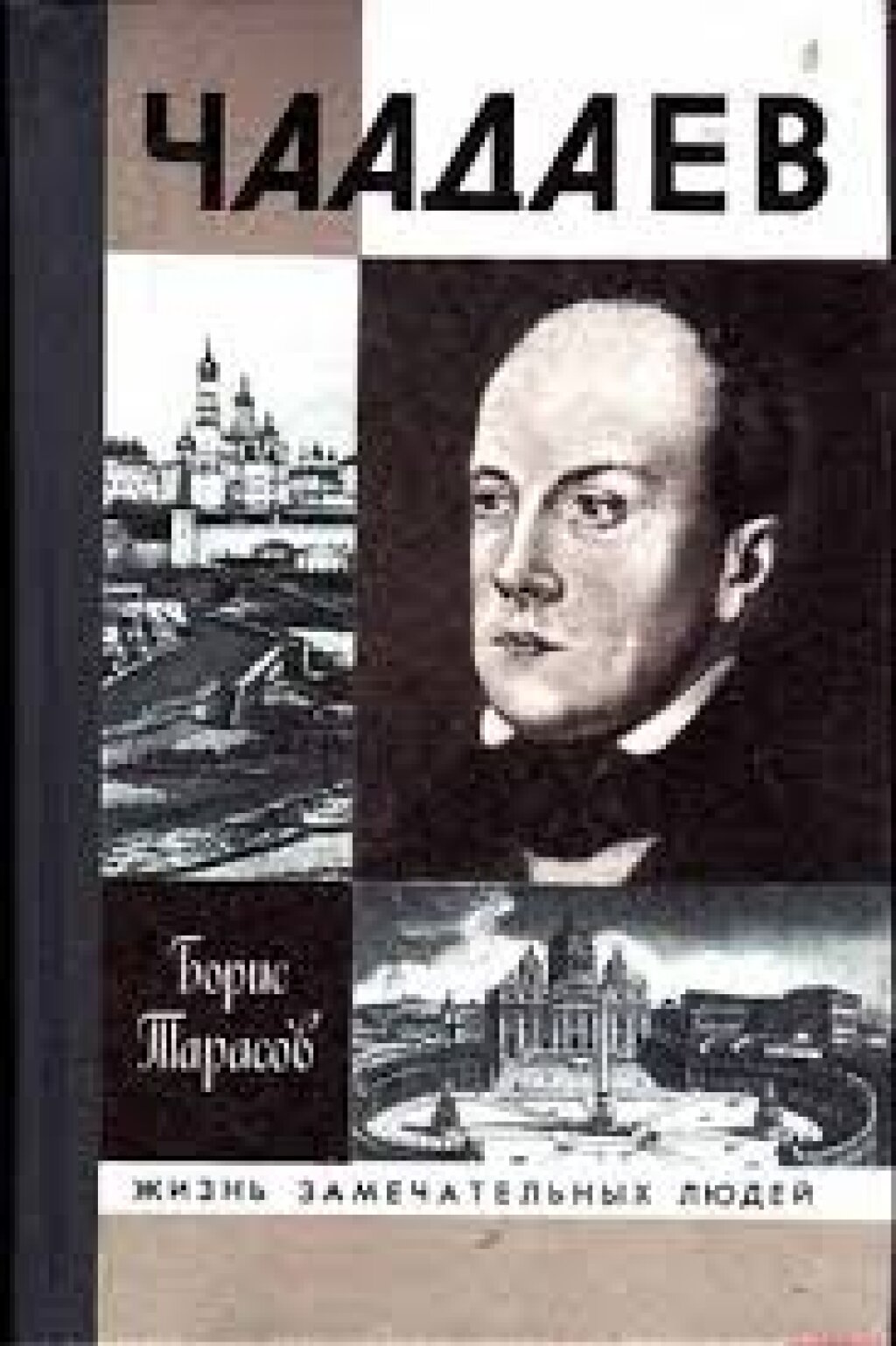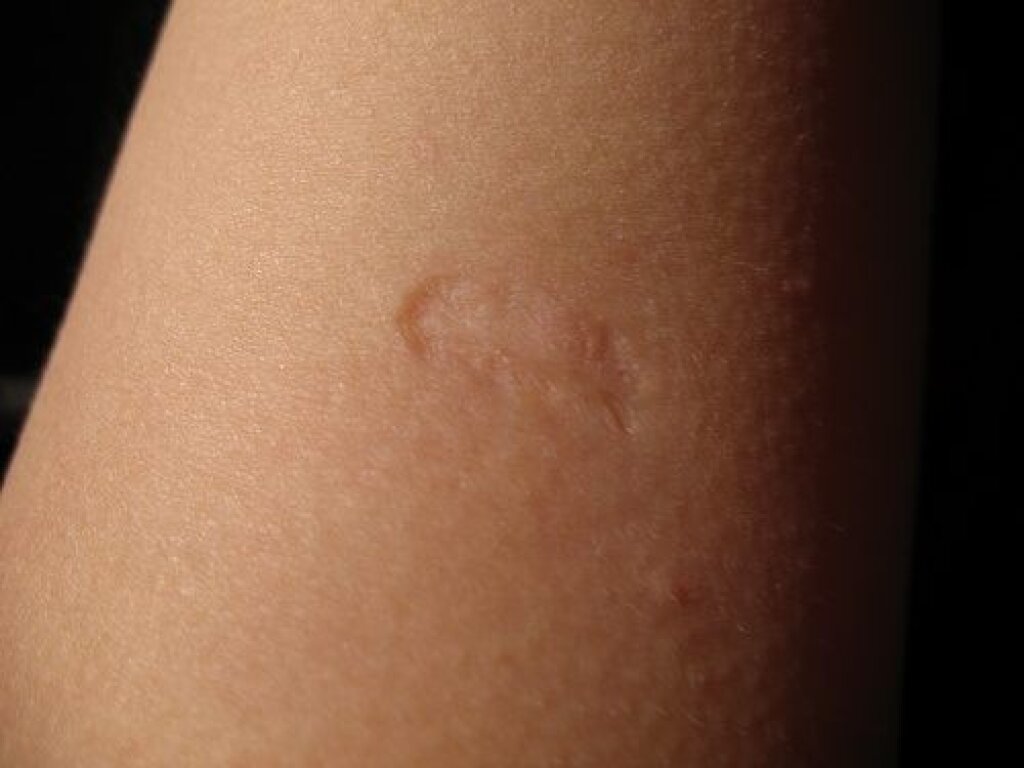There are really only two problems with The Putin Interviews, Oliver’s Stone’s four-hour series on Showtime: Vladimir Putin and Oliver Stone. One of these men is completely paranoid about American hegemonic power and convinced that Russia can be a a constructive counterbalance on the world stage. The other is the president of the Russian Federation.
I’ve grown used to Putin playing an outsize role in my media diet; for people in my line of work, it’s an occupational hazard. But I gave up on Oliver Stone about halfway through his 1995 Nixon biopic, and, with the exception of his recent documentary on Ukraine, have followed his subsequent conspiracy-mongering only through second-hand sources. So I was unprepared for a week of waking up each morning to spend an hour in Stone’s company, and found myself surprised to discover a newfound empathy with Putin. Watching the Russian president’s strained smile during 20 hours of conversations with Stone, I realized that the only difference between his expression and mine could be chalked up to Putin’s rumored fondness for Botox.
Nothing Putin says over the course of the documentary series is much of a surprise. Unlike his current counterpart in the White House, Putin has far too much experience and self-control to allow himself to be caught in very many candid moments. Still, some parts of these interviews, particularly when Putin explains his government’s understandable hostility to NATO expansion, could be considered a public service. The American media are hell-bent on demonizing Putin, and it is important that the public see that at least some of his actions on the world stage are the product of diplomatic failures in which the United States is far from blameless.
The initial wave of reviews has already highlighted one of the program’s most obvious failings: Stone’s failure to follow up on Putin’s claims with any kind of informed, serious challenge. His tacit agreement with Putin’s narrative about Ukraine is not a surprise, given the tenor of Stone’s 2016 documentary Ukraine on Fire. But the director who told Stephen Colbert that he has “always been for free speech” devotes virtually no time to the suppression of dissent in the Russian Federation, the increasing control over the Internet, and the use of “anti-extremist” legislation as a cudgel against middle-of-the-road activists. When Putin claims that the Russian media are completely free of state control, Stone gives him a pass. But given Stone’s previous praise of the RT propaganda channel, maybe this is to be expected.
Oliver's Twist
Watching Stone question Putin and, worse, try to make small-talk, is simply embarrassing. Stone’s two main limitations become clear immediately: he doesn’t seem to have done much homework about the topics he raises (Canada and Australia are involved in Syria, too?), and he is unable to see just how thoroughly American (and American Left) his interpretive framework is. In the first hour, he calls Putin a “real son of Russia” for stopping privatization, only to be told by the Russian President that he did no such thing. Stone also clearly relishes the stories of Putin’s defeat of the Russian oligarchs; the oligarchs are bad just like Wall Street is bad, making Putin the champion of the little man. We don’t hear anything about Putin’s wealth, or the strange coincidence that so many of his childhood friends have managed to enrich themselves.
Stone’s American blinders also explain the fact that his only questions about personal freedom concern NSA-style bulk surveillance data. Initially, he’s pleased to hear that Russia doesn’t engage in this practice. But while this is a burning issue for the United States, it is far from the most relevant concern in Russia, which has plenty of other, often low-tech, means of gathering information and hindering expression.
It also makes sense that one of the few lines of questioning that Stone pursues even after Putin’s reassurances has to do with LGBT rights, since this is an issue that immediately makes sense to American audiences. My point here is not to dismiss this concern (especially in light of the revelations coming out of Chechnya); Putin should be pressed on his government’s complicity in homophobia and homophobic violence. But Stone has to be persistent here, because Americans might actually notice if he’s not.
Otherwise, Stone as an interviewer is an utter failure. He talks too much, and wastes a great deal of screen time on shots of him walking around Moscow and reacting (“Look! It’s John Reed’s grave!). After twenty hours surrounded by Russian speakers, he still has no idea how to work with an interpreter, referring to Putin in the third person while sitting right in front of him.
You never know when a simple question is going to be couched in conspiratorial terms (“Is Wall Street trying to destroy the Russian economy in the interests of the United States?”). At one point, Stone suggests that Edward Snowden was a pawn in a geopolitical game mastermind by American neoconservatives. Putin laughs, and responds, “Это слишком тонко” (“That’s too subtle”). The interpreter renders this line as “That’s too subtle for them,” but in the original, Putin’s words sound less like a dismissal of the neocons' capabilities than a rejection of Stone’s fantasies.
Useful Idiots Abroad
At times, Stone seems like a Russian caricature of American vapidity, peppering Putin with banal questions (“Do you get lonely at night?”, he asks, inadvertently paraphrasing Elvis Presley), and insisting on understanding the world through the movies. In the second episode, Stone coerces the President of Russia to watch Stanley Kubrick’s masterpiece Dr. Strangelove. . Stone had 20 hours with Putin, and wasted an hour and a half glancing from the screen to Putin’s face like an anxious cineaste boyfriend making sure his date’s film tastes are worthy of him.
Fortunately for Stone, he and Putin prove somewhat compatible. Just as Stone views Russia as a reflection of his own preoccupations , Putin engages in classic examples of projection when criticizing the US. The United States suffers from “an imperial consciousness,” and seems to need to build an “external enemy” for internal purposes. He’s not wrong, but the president of the country that invented “whataboutism” should know something about living in glass houses.
Their compatibility has its limits, which coincide with the limitations of Oliver Stone himself. Throughout most of the documentary, Putin’s attempts to show amusement and mirth are confined to the strained, unnatural smile that he reserves for such occasions. Toward the end of the third episode, Stone makes a painfully naive suggestion as to how Putin could have resolved a diplomatic problem with Turkey. Putin bursts out laughing; for a moment, he can’t even complete a sentence, before he finally says, “Мне …мне приятно с вами разговаривать” (“Well, it’s so pleasant to talk with you"). Stone has no idea that he has just been dissed.



